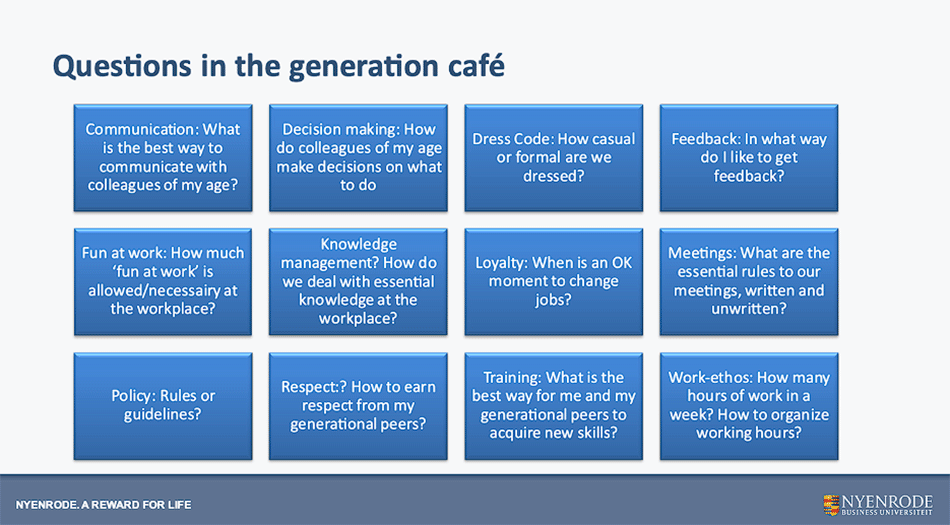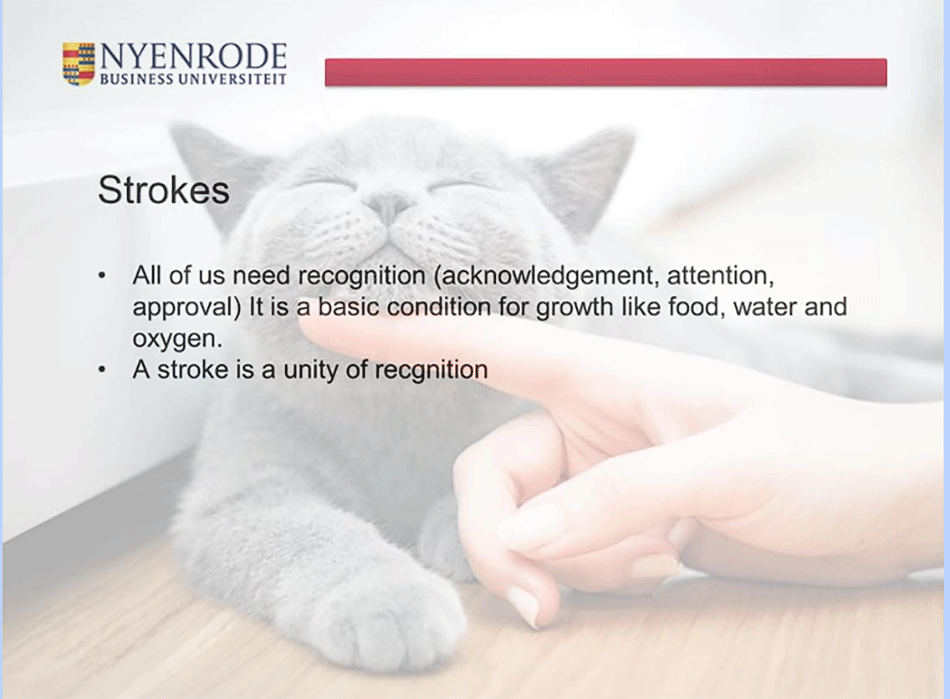By Erik Maier
Gen Z are ‘anxiously optimistic digital natives in pursuit of face-to-face interaction’, a recent survey revealed. When it comes to the workplace, Gen Z’ers feel that they are not prepared well enough by their education, especially on common soft skills like negotiation, networking, presenting, and dealing with conflict. Anxiety and low self-esteem were also seen as emotional barriers to workplace success.
So, the largest cohort in the workforce nowadays has issues. For leaders in the workplace, this is a serious responsibility with – when not dealt with properly – great economic consequences. In most of the customized executive leadership programs at Nyenrode Business University, these issues are a top priority. In these programs, we find managers often feel confronted when we address this, preferring not to take the blame for these problems.
It is often comforting and easier to discard Gen Z as ‘spoiled’ and ‘not focused’. However, existing managers and leaders are part of the problem. Existing managers and leaders must start to understand that their acquired styles of leadership and their built corporate cultures are not effective in leading Gen Z and do not unlock their full potential.
In our programs at Nyenrode, we work with two powerful tools to kickstart leadership potential in managers who must deal with growing numbers of Gen Z in their workforce:
- Multi-generation Café’s: To help leaders better understand Gen-Z
- Practicing Strokes: To encourage managers to give respectful, helpful feedback
Multi Generation Cafés
Stephen Covey, author of the popular book ‘The Seven Habits of Highly Effective People’, says “we must first seek to understand, then be understood”. To achieve this, we help leaders organize multi-generation Cafés. We create a café setting (cosy area, standing tables, informal setting) where managers dress casually, leaving their cultural artefacts (formal clothing, such as ties, suits, etc.) behind and meet with the younger generations over a drink. On each table is a topic that illustrates intergenerational dynamics in the form of an open question.
You can see some of these questions here:

In the Generation Café we do set some rules: no discussion, and don’t judge nor justify. Ask the open questions and listen.
What happens, due to the level playing field setting, is that the different generations start to understand the differences between one another. They smile and laugh about each other’s specific generational attitudes and behaviors.
With this mutual understanding, respect grows. In the double loop, managers experience a non-violent way of communication to investigate the intentions and behaviors of Gen Z’ers. This understanding of other generations and non-violent communication is essential for step 2: practicing strokes.
Practicing Stokes

Eric Berne, the founder of Transactional Analysis, concluded that people need recognition or ‘strokes’. These ‘strokes’ are as essential to life as oxygen, water and food. Dr Berne uses the word ‘stroke’ to encompass both positive and negative recognition.
The key to leading Gen Z is to understand their need for strokes – in their case receiving feedback and recognizing a job well done – and above that to understand your ‘stroke profile’ as a manager.
Baby Boomers and Gen X’ers have vastly different ‘stroke’ profiles than Millennials and Gen Z’. Recent research shows that in learning organizations, three to five times more positive ‘strokes’ are shared than in non-learning organizations.
Most managers in our programs react in disbelief when they hear this and don’t recognize this positive attitude in their organizations. ‘If you hear nothing it’s good, because you’ll certainly hear when something is wrong’ is more than often the unwritten rule. Imagine if you started your career in these organizations: what does it tell you about your stroke profile? How much positive and critical feedback do you share in the workplace? How do you deal with critical and positive feedback? Do you ask for feedback, or do you refuse to accept feedback? All essential questions to understand your own ‘stroke profile’.
Then there is the widely spread unwritten management rule: Treat others the way you want to be treated. Here we are in the midst of the workplace crisis to empower Gen Z’s and support them to become valuable for our organization. This crisis is illustrated by the high scores on anxiety and low self-esteem as career blockers in the Workforce Institute survey. This, together with the low preparation on soft skills, gives Gen Z’s a double handicap at the start of their careers.
These types of individuals are more likely to succeed in organizations where there is a rich stroking climate. Transactional analysis differentiates between 4 types of ‘strokes’: positive, negative, conditional (task-based) and unconditional (personality-based). Unconditional negative strokes should be avoided in the workplace. All other sorts, when applicable and well-balanced, contribute to a secure and healthy workplace where talent can flourish.
In practising formulating, giving and receiving these ‘strokes’, managers can discover a lot about their own response to feedback. This often leads to profound insights into their own upbringing, school history and organizational culture.
Simultaneously, they understand that Gen Z’ers are raised in an entirely different ‘stroke climate’ (in fact, often these managers are parents who decided to raise their kids differently than their parents did). A ‘stroke climate’ where psychological safety – as an outcome of healthy unconditional positive stroking – is key to learning and experimenting, building a climate where a job well done is recognized and where there are clear co-created boundaries.
Building these organizational climates often calls for changes in leadership style and organizational culture. In these healthy organizational climates, soft-skill learning is easy because healthy climates invite to experiment but also are secure enough to show vulnerability. Gen Z’ers, together with their leaders, can formulate realistic development goals. Flaws and mistakes are identified, discussed and forgiven.
It looks like a huge change in the way we work in our organizations, but it actually starts with personal development. Take good care of yourself, invest in others and sustain a positive environment in your team, department and organization.
This will help you create a secure and welcoming workplace for all generations.
About the Author
 Drs. Erik Maier works as a lecturer, program manager and PhD student at Nyenrode Business University. He is part of Nyenrode’s Faculty Research Center for Strategy, Organization & Leadership. Preferably he works on the field of personal development and organizational development: the area where strategic goals of the organization an individual needs connect and sustain.
Drs. Erik Maier works as a lecturer, program manager and PhD student at Nyenrode Business University. He is part of Nyenrode’s Faculty Research Center for Strategy, Organization & Leadership. Preferably he works on the field of personal development and organizational development: the area where strategic goals of the organization an individual needs connect and sustain.




































